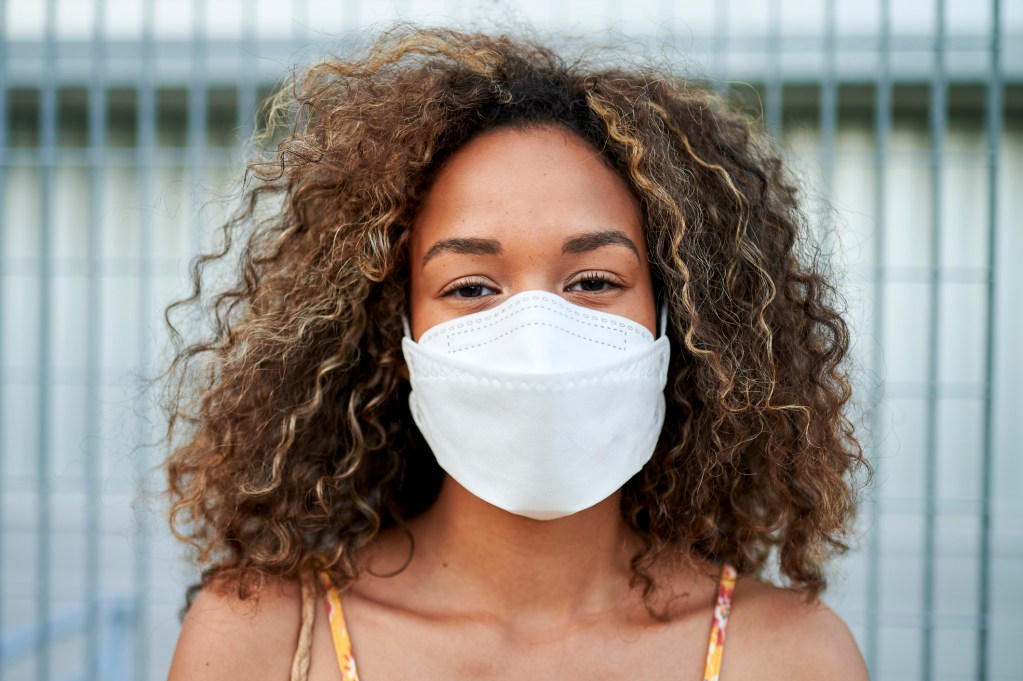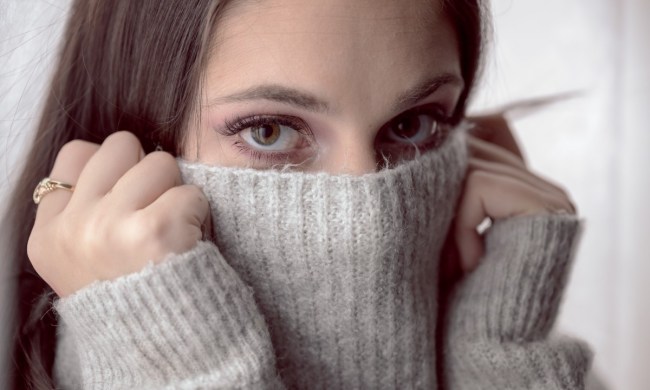It crept up a bit on you at first, didn’t it? You thought it was due to stress, or relying on junk food to get you through the start of COVID, or acclimating to working from home. Then you realized the truth. The mask that is protecting you from getting sick is also waging a war of pimply proportions on your face.
Let’s talk about maskne — chin acne due to wearing a mask. While you can cover the chin acne with the mask, it can create a vicious cycle. Instead, let’s dive into how to treat and prevent getting chin acne caused by your mask so you can stay protected and be ready for mask-free life.

Wash your mask
Don’t reuse a mask without washing it
If you prefer reusable masks, wash them often. The second your mask hits the air it starts collecting bacteria, dust, and other particles. The second you put it on your face you start to add sweat, dead skin cells, and more bacteria.
Wash your masks with a gentle, mild soap and skip the bleach or other chemical cleaner. Your face will not like that and bleach will start to break down the fibers in the mask.
Don’t use anyone else’s mask
Do we really have to say anything more about this one? We’re trying to prevent the spread of germs, here.
The kind of mask you get matters
Everyone has their favorite mask. You have the one with the pattern you like or that one with the funny saying you got off of Etsy. But there are certain materials you should skip because they will irritate your skin.
Don’t get masks made of
- Rayon
- Nylon
- Synthetic fabrics
Look for masks made of
- Silk
- Cotton
- Natural fabrics
- Softer fabrics
Making sure your mask is as soft and natural as possible is a great step in keeping your chin acne-free. Your skin won’t become irritated and your pores won’t become as clogged. Silk masks are the best option. Silk is antibacterial, which is a plus. But it will glide across your skin and not tear and pull.

Wash that face
Clean your face every time you take your mask off, even if it’s just toner
You have to clean your face when you take that mask off. If you can’t fully wash your face every time you remove your mask give the area a quick going over with an alcohol-free toner.
When you put a mask on you are placing any bacteria, germs, dirt, and other particles it has picked up in direct contact with your face. Yes, that mask is keeping people’s sick germs away from you. But if you keep your mask in your purse or hanging in your car, it’s constantly collecting bits of grit and grime. Your skin will thank you if you at least clean your face with toner consistently, even on the days you don’t wear a mask.
Go makeup-free
At the very least, don’t wear foundation, concealer, or blush
If you have to wear a mask to work, you are only showing off your eyes anyway. You can still rock the cat eye and your favorite lid color. But concealer and foundation clog your pores normally. Add to that a mask that is going to rub against your skin and drive that product deeper into your dermis and the combination will lead to even more acne.

A moisturizer is a must
You need to create a healing barrier between your skin and the mask. The right moisturizer is important no matter what is causing your acne. If you have dry skin, opt for a hydrating moisturizer. If you have oily skin, reach for a gel moisturizer.
While we don’t see masks going away any time soon, we do want your maskne to. If you already suffer from acne, eczema, or rosacea in normal times, wearing a mask is probably making it worse. You can still keep yourself and your loved ones safe by wearing your mask while not having your face pay the price. Making sure you are following these tips every day will help your skin clear up and prevent future maskne breakouts.
BlissMark provides information regarding health, wellness, and beauty. The information within this article is not intended to be medical advice. Before starting any diet or exercise routine, consult your physician. If you don’t have a primary care physician, the United States Health & Human Services department has a free online tool that can help you locate a clinic in your area. We are not medical professionals, have not verified or vetted any programs, and in no way intend our content to be anything more than informative and inspiring.



